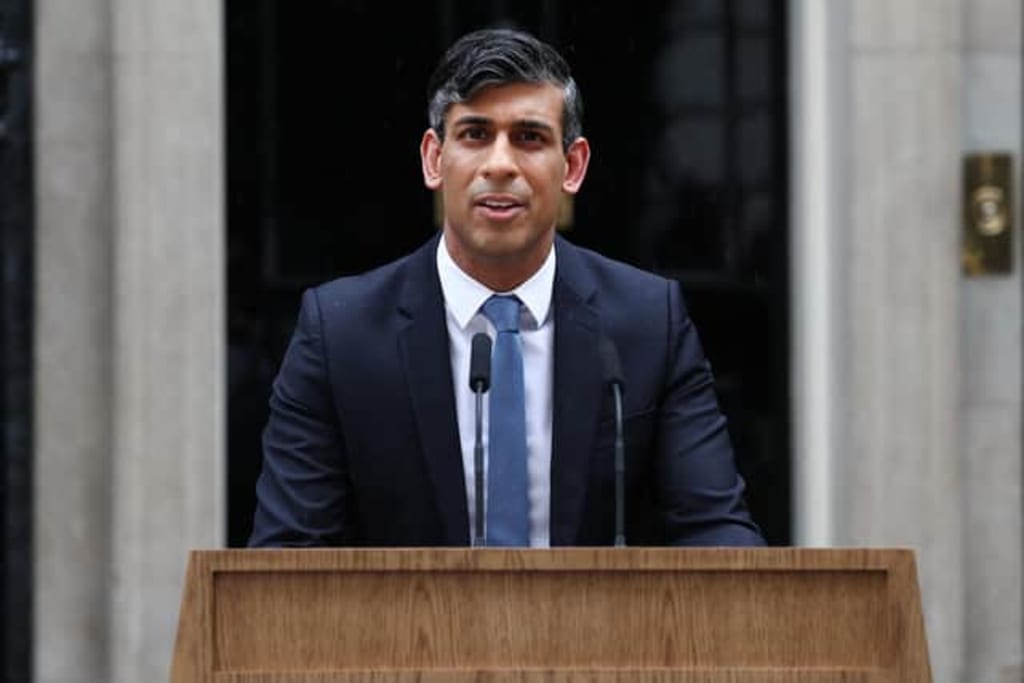
British Prime Minister Rishi Sunak has fired the starting pistol for the 2024 UK General Election. On the steps of 10 Downing Street, he gave a speech in which he declared that the date the country would be able to choose its next government would be Thursday 4th July. This was due to the fact that he felt that stability was now returning to the economy and the country as a whole. This would enable people to have more confidence in what they do in their daily lives which would help them find work more easily in an effort to afford a comfortable standard of living during a time when they may be seeing prices for different products and services rising in today’s market place.
Mr Sunak said people had a choice of whether they wanted to continue heading towards a stable future or whether they wanted to go back to the chaos of the past. Mr Sunak continues to be extremely unpopular amongst voters with only 20% having a positive impression of him whilst 71% do not view him as their favourable candidate to vote for. This gave him a net favourability score of -51 this month which is his joint lowest to date along with January.
There has been a mixed reaction to the Prime Minister’s announcement from different key political figures. Labour leader Keir Starmer remains in a much more favourable position than his opponent although he is still unpopular overall with only 34% having a popular view of the Labour leader and 51% have a negative one, giving a net score of -17.
Jeremy Hunt continues to be an unpopular chancellor (-46 net score) and Rachel Reeves is still mostly unknown to the British public – 56% do not offer an opinion on the shadow chancellor, who receives a net score of -10.
Labour shadow foreign secretary David Lammy is similarly obscure to the public: 59% don’t have a view, with a net score overall of -18. The David whose job he is after – Lord Cameron – is far more well-known, and far less well-liked: 66% have a negative opinion of the foreign secretary, compared to 21% with a favourable view, for a net score of -45.
That’s according to statistics coming from YouGov.
In many interviews he took part in, Mr Sunak declared that he is not claiming that the job is done and says there is yet more work to complete in order to ensure that the country is in a stable and safe situation in order to help it survive in the future.
There are many steps which have to be taken once a General Election is called. These include:
:
Parliament has to finish off its business before MPs cease to become MPs and head-off to campaign
There are 16 government bills still in Parliament and the parties will have to decide what happens to them
There will likely be deals made with opposition parties because some of those bills are controversial
Next week, the King has agreed to dissolve Parliament – that happens on Thursday
There are then 25 working days – or 35 actual days – that will then take us to the general election on 4 July
There will be political battles across the country and not just between the two main parties, Labour and the Conservatives.
Leaders of other big parties have given their reaction to the general election. Let’s bring you a flavour of what they have said:
Liberal Democrat leader Sir Ed Davey said the general election would be a “chance to kick Rishi Sunak’s appalling Conservative government out of office and deliver the change the public is crying out for”
The Green Party set out how they would offer voters “practical solutions to the crises facing the country”. Co-leader Carla Denyer, who’ll be standing to become MP for Bristol Central, said a July election was “the chance to vote for a different vision of what our country can be”
Reform Party leader Richard Tice posted a video on social media telling voters “We’re ready” for a July general election. “What a scene – the PM drenched in rain,” Tice said. “Drowned out by the boogie-blaster of Steve Bray, no less, highlighting the utter incompetence of this Conservative government”
In Wales, Plaid Cymru leader Rhun ap Iorwerth welcomed the “long called-for” July election date and said his party’s focus would be “fairness”. He said: “We will be the ones demanding fairness for Wales in funding and our ability to build a better future.”
The different parties will now head out on the campaign trail to try and gather as much support as possible for when the election comes. There have been many people struggling round the country with their standard of living who would be looking for a change to the way things are done in order to make the country more sustainable.
Many disabled voters still experience barriers to political participation.
In 2017 the Government issued a call for evidence about the experience of disabled people in participating in elections, including registration. The Government received over 250 responses and published its response in August 2018. The responses came were mainly from
people affected by sight loss,
wheelchair users
people with learning disabilities; and,
people affected by mental illness
Systems should be put in place to make voting more accessible for disabled people. This way they will have the chance to make their voices heard and have more equal opportunities in society. Many people may choose to vote by post if they can’t get out and about but more needs to be done to ensure everyone has the opportunity to have their voices heard.